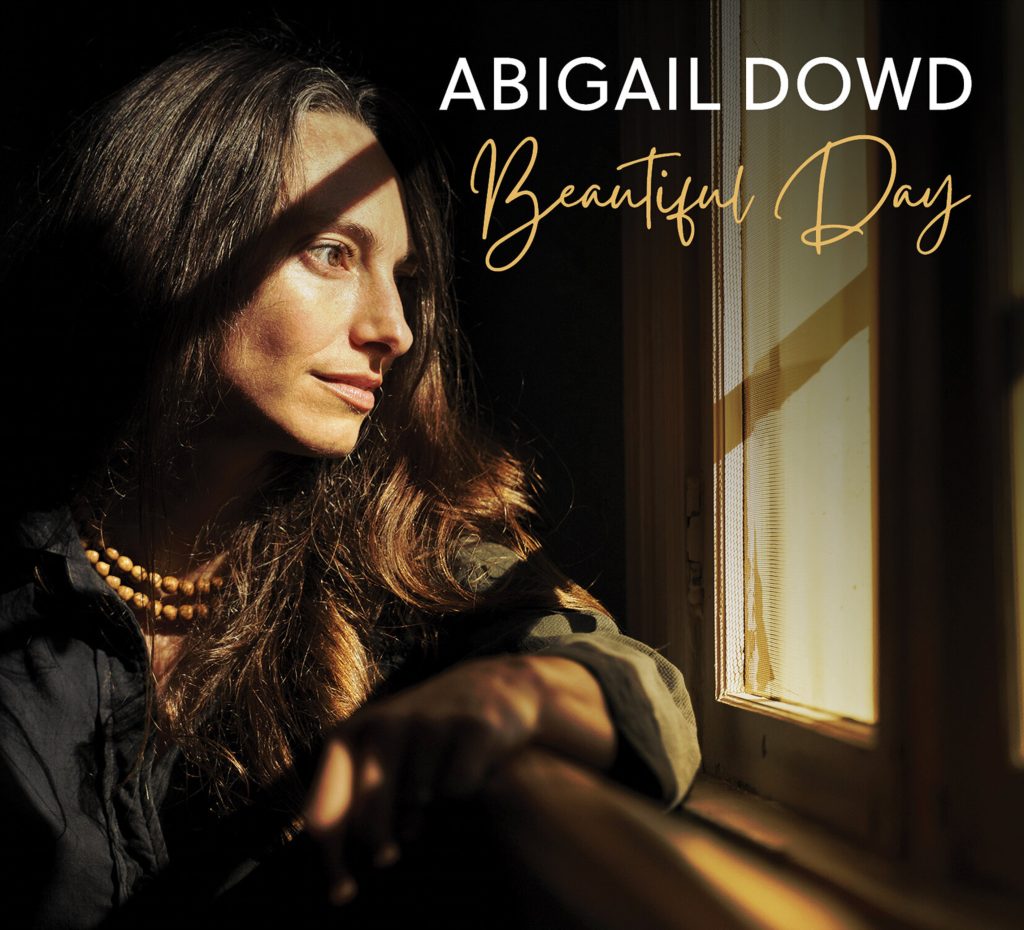Article Contributed by Sarah J Frost
Published on April 25, 2021

In 2018, singer-songwriter-guitarist Abigail Dowd found a new set of intentions while on the banks of the St. Vrain Creek outside of Boulder, Colorado: be fearless, listen to her inner voice at all costs, and learn to go with the flow. That last piece of the puzzle gained significance as she and her husband navigated their home flooding six times in the next 13 months and Dowd spent time living with friends and family, making sense of what was happening around her through the songs that would become Beautiful Day, out today.
Recorded over five days in late February 2020 at the Fidelitorium in Kernersville, North Carolina, Beautiful Day was produced by Jason Richmond, also a Grammy-nominated engineer and mixer known for his work with The Avett Brothers and Dom Flemons, among others. The 12 songs on Beautiful Day continuously echo the same intentions Dowd set before the first flood that changed everything: fearlessness, hope, letting go, freedom, faith and gratitude. Dowd and Richmond brought in a stable of musicians — Joe MacPhail on keyboards, Austin McCall on percussion, Alex McKinney on dobro and pedal steel guitar and Scott Sawyer on electric guitar. Dowd’s husband, Jason Duff, was there, as always, on bass.
Dowd and her husband were married in Rome just a few months before the first flood in September 2018. The day of their planned celebration with family and friends, the forecast changed and Hurricane Florence engulfed their yard. Weeks later, Hurricane Michael hit even harder, forcing the newly-married couple to move in with his parents. With the water came songs. “One Moment At A Time,” a gentle, lilting tune that embraces taking life one day at a time, appeared like a download while Abigail was sitting at a stoplight on her way to a meditation class. “Dowd’s eager vocals are accompanied by toe-tapping instrumentals that create a package of sonic warmth,” American Songwriter notes. “It’s a friendly reminder that life’s blessings are happening in the here and now.”
Later, giving in to the urge to pick up her guitar, “Judgement Day” poured out in a stream of consciousness. Sitting on the floor of a borrowed bedroom, she dissected society’s expectations of women and how institutionalized their place is, right down to changing their names after marriage and leaving behind a legacy of their mothers and grandmothers. She hadn’t realized she had so much to say about how deeply rooted the denial of the sacred feminine is.
Nine months later in Colorado, Dowd stepped into the same creek, and with her guitar and iPhone, sat on a boulder and hit record to capture any ideas that might come. As if the water itself was a co-writer, “River,” and its instrumental introduction “St. Vrain,” came out nearly complete. “St. Vrain” takes inspiration from Bedrich Smettna’s symphonic poem “The Moldau,” about Prague’s Vltava River, and “River,” partly inspired by a line from a hymn she sang as a child, reimagines a modern baptismal hymn while acknowledging the cleansing power of water. What Dowd did not know while she was writing was that 1600 miles to the east, a storm was rolling in that would put her faith to the test. All the work they had done to repair the house — a new kitchen, HVAC repair, fresh paint, mold remediation — was undone in a flash.
While her husband stayed in their unheated house to repair it once again, Dowd was dealing with the impact on her health, consulting a series of doctors: the water damage had affected her lungs, and she worried she would have to quit singing. For five months, Dowd bounced from friend’s house to friend’s house. She didn’t know where she would be or what would happen from one day to the next. It became the most uncertain time of her life — and the most abundant.
As days turned into months of unforeseen challenges and blessings, the songs kept coming. Though different in their subject matter, both “Apple Trees” and “After the Fall” are vividly imaginative in their illustrations. The former reflects on a past relationship through scenes of a farm in Maine, where Dowd previously lived, while the latter conjures imagery from her early childhood memories of a Pentecostal preacher — both not so long ago but also seemingly different lifetimes altogether.
“Rise Above,” haunting in its presentation, was written about navigating darkness to find light and clarity. “Run” takes its influence from a passage about the loss of native language in the Wade Davis book “Wayfinders.”
Written before she realized the world might need its messaging the most, the album’s title track, “Beautiful Day,” conveys a sense of loneliness while simultaneously offering hope. The Bluegrass Situation says Dowd “gives us a reminder to enjoy the moment, and have faith that a brighter day is always coming.”
“Grandmother Moon,” the album’s closing track, was written after a Sacred Fire Foundation event, an organization that strives to keep Indigenous wisdom alive and expand awareness about why the Indigenous worldview is crucial for current and future generations. Dowd felt led to the event by several serendipitous signs. The song is a benediction that bookends the album; from the opening track’s hopefulness of overcoming loneliness to this final song of gratitude, “Mother Earth walks by my side, I never feel alone.”
Americana Highways says “Dowd’s soulful country voice shines best in tracks like ‘Diamond,’” which Wide Open Country also notes is a powerful healing mantra. It was the first song written for the album and may summarize what Dowd has learned from this experience the most completely: “The second album was a releasing of stories, and I love the way this song came along, days before the first flood of our house,” she says. “It was as if it was there to remind me that home is much more than a house, and I’m already there: everything we’re looking for is inside of us.”